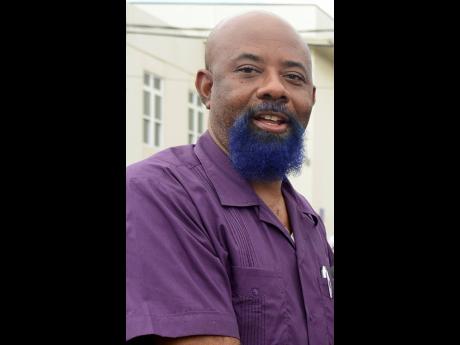NO WILD WEST
NPTAJ urges parents, students not to take school hairstyle ruling out of context
The National Parent-Teacher Association of Jamaica (NPTAJ) has warned that Monday’s Court of Appeal ruling on a primary school’s denial of access to a female student over her dreadlocks could further disrupt school-grooming policies.
“It can create the Wild Wild West, where come September morning, the mohawks and all of the different hairstyles are going to be presented to schools, and they’re going to be quoting what the justice has said,” NPTAJ President Stewart Jacobs told The Gleaner on Wednesday.
In its ruling, the court said that in 2018, Kensington Primary School breached the then five-year-old child’s right to freedom of expression and the right to equitable treatment by a public authority in the exercise of any function.
The decision overturned, in part, a 2020 decision of the Supreme Court that the school’s policy did not breach the child’s constitutional rights.
School rules, especially those that relate to hair, have been a source of perennial contention between school administrators on one hand and parents and students on the other.
While noting that the Court of Appeal’s decision has set the tone for how students interface with grooming policies going forward, Jacobs cautioned them to contextualise their interpretation.
“The ruling covers the hair of the child; ... it doesn’t mean that it’s a free season now, where children can dress as they feel like going to school. There must be that understanding,” he said.
Challenge schools’ flexibility
Jacobs believes that the ruling will challenge school administrators’ flexibility with rules. He said that he is concerned that some parents might use the decision to justify their children breaching school regulations.
“Parents should not flaunt it and go all the way wild now, thinking that each time that they flaunt the rule, then there is going to be some lengthy court case at the end of the day,” he warned.
Labelling the court’s decision as a “very thin line of justice”, Jacobs emphasised the need to balance children’s rights with the values of schools.
“I wouldn’t want parents to start talking about human rights and constitutional rights and abuse of rights and take it out of context. It must be that we respect the court of the land, and at the same time, respect what the school was trying to achieve. The school was trying to achieve a uniform dress code for all, … a particular way in which its principles are met,” he said of the case.
Conversely, he said that the student’s parents were fighting for their child’s right to express herself through her hair.
But sharing her satisfaction with the “clarity” that the ruling has brought, Education Minister Fayval Williams is hopeful that it will inspire school administrators to adopt a more enlightened approach to grooming policies.
“I am sure it’s going to generate conversations because different principals may interpret it differently. But at the end of the day, essentially [what] this is saying, this is honouring our natural hair and asking our school leaders to, maybe, be a little bit more liberal in thinking about dress and grooming while, at the same time, emphasising the discipline that is needed in schools,” she said.
Grooming policy
Williams, who was attending the launch of the Professional and Continuing Education Programme on Wednesday, told The Gleaner that the ruling would be incorporated into the grooming policy that the ministry is finalising for public schools.
She also emphasised that the draft grooming policy being disseminated by the ministry is the most inclusive so far and acknowledges that students’ natural hair should not face discrimination.
“We want there to be orderliness in our schools. We want our students [and] our parents to obey the rules of the school and, obviously, we want principals and all stakeholders to work together, and where there are disagreements, there’s a process to be engaged at the school. That is where we have been sensitising all stakeholders to,” she said.

